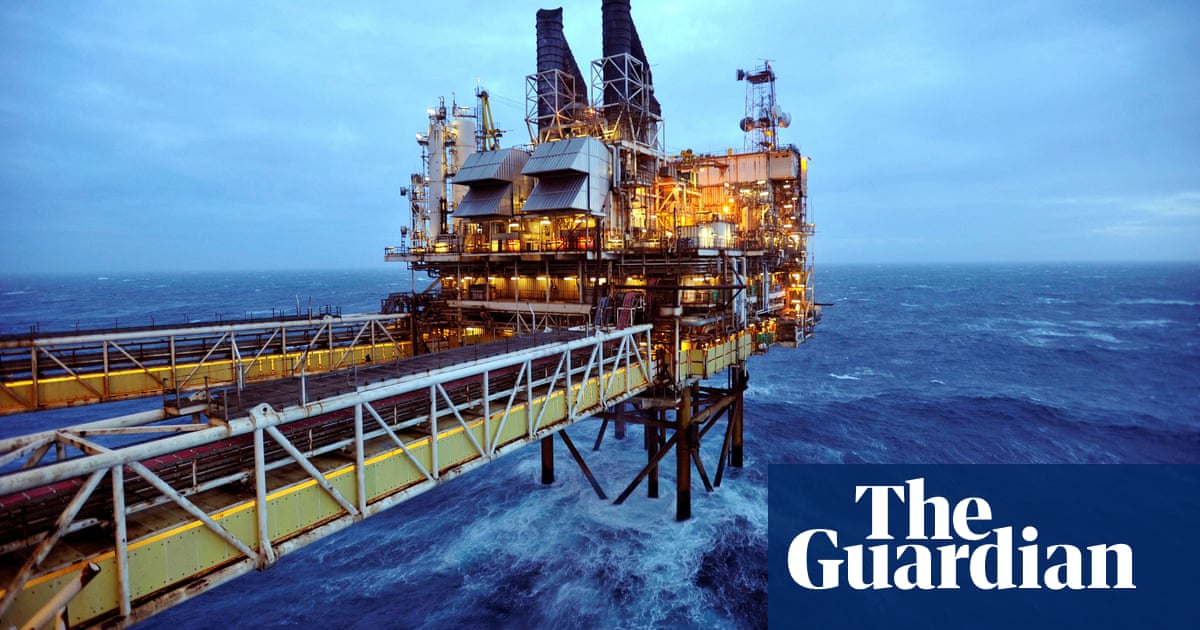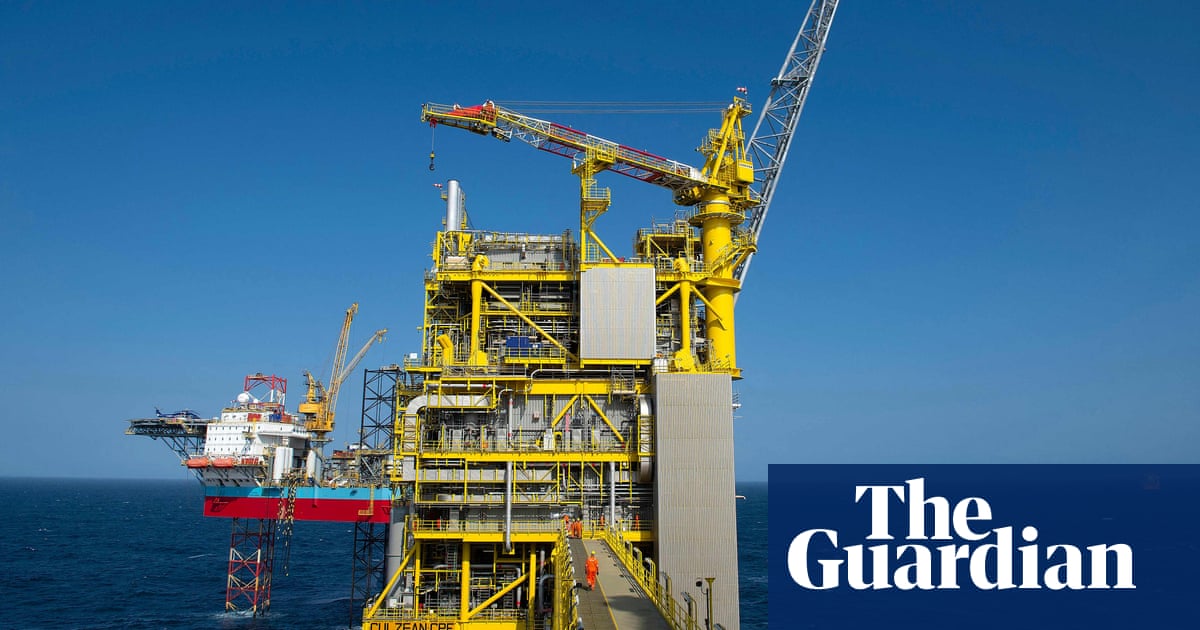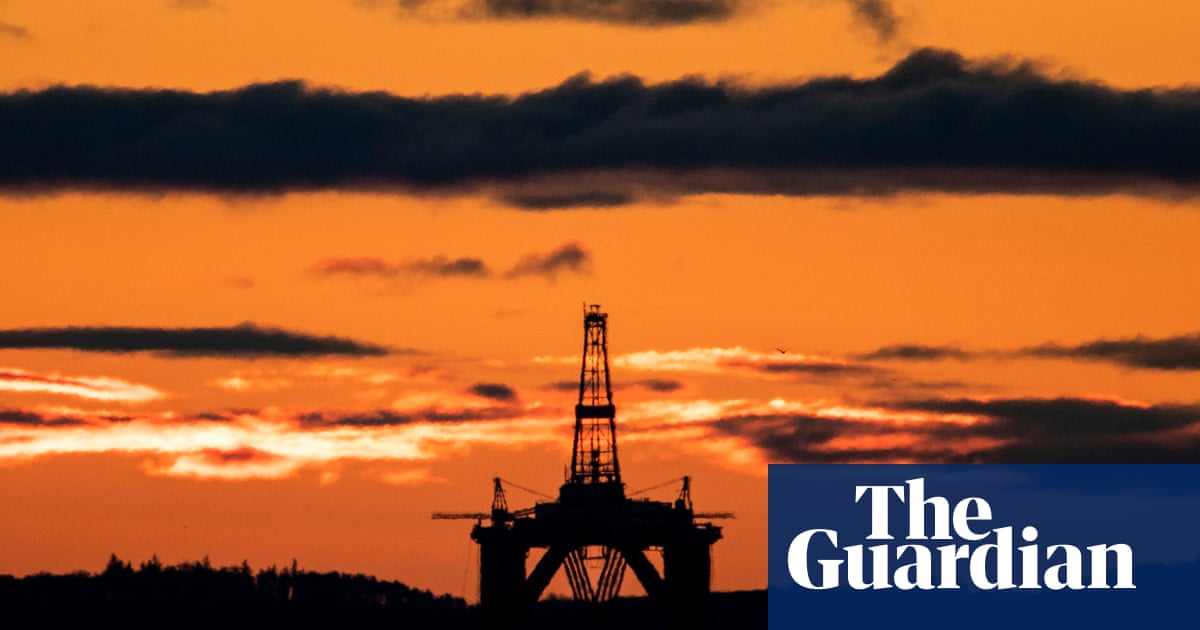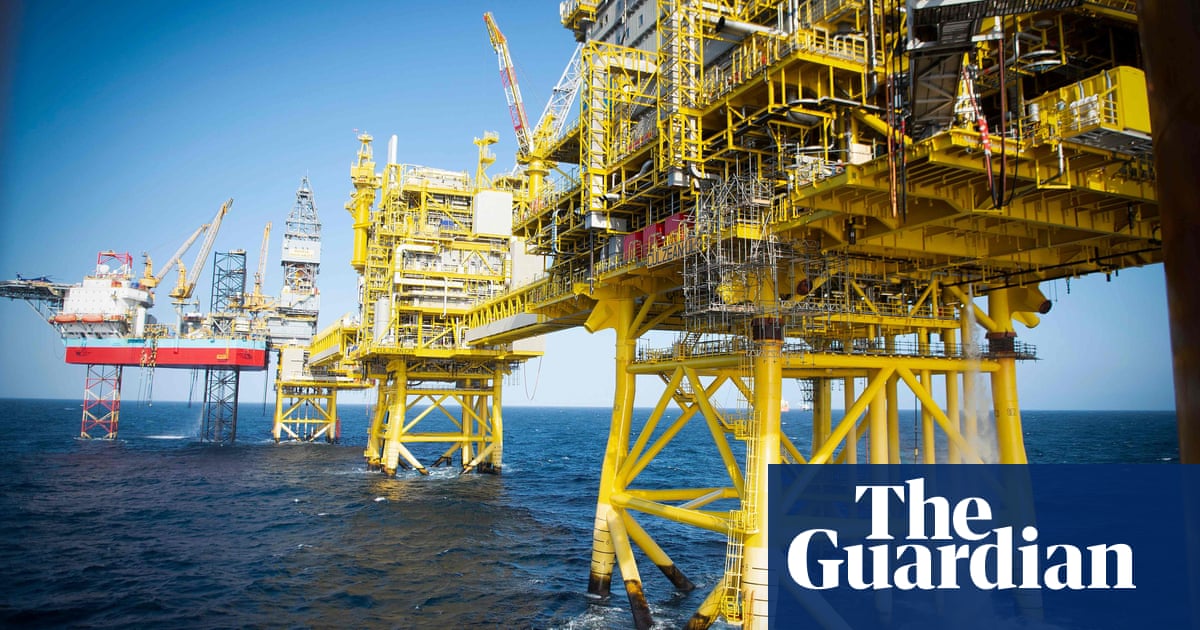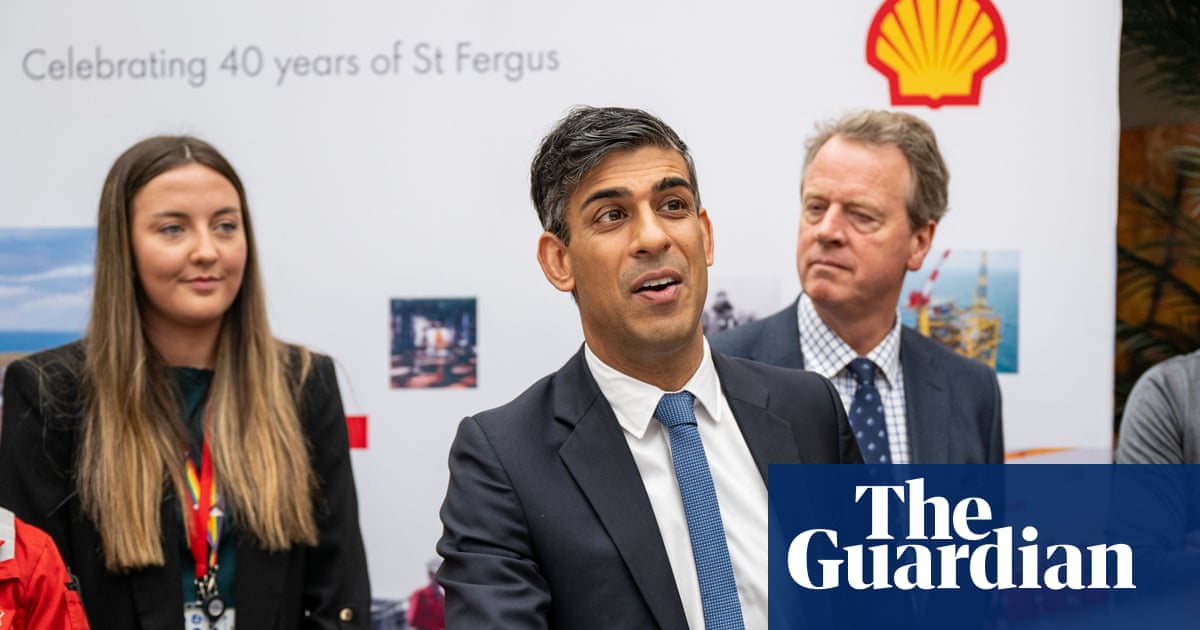
Rishi Sunak hopes to extract as much oil and gas from the North Sea as possible, No 10 has said, as it announced 100-plus new drilling licences in a “maxing out” policy that environmental groups said would obliterate the UK’s climate commitments.
The plan was also criticised by Chris Skidmore, the Conservative MP who led a review into net zero, who said it was “on the wrong side of modern voters”.
Making a visit to Aberdeenshire on Monday, Sunakclaimed the move was “entirely consistent with our plan to get to net zero”, telling broadcasters that domestic supplies were significantly more efficient than shipping gas and oil from other countries.
Sunak’s junior energy minister, Andrew Bowie, described the proposals for the new North Sea licensing round, unveiled on Monday morning, as “maxing out our oil and gas reserves”, a notion backed by Downing Street.
Asked whether a plan to allow new licencees to drill for reserves closer to current projects than previously allowed was an attempt to maximise the amount of oil and gas extracted, Sunak’s press secretary said this was “the definition of the new licensing round”.
She said: “The prime minister is firmly of the belief that we should use the resources that we have here at home, first and foremost.”
Saying that at least 100 new licences and possibly many more were expected to be awarded from the autumn, the press secretary argued this was “totally compatible” with the goal to achieve net zero by 2050, given fossil fuels would still be needed then, and domestic supplies required less transport.
Oxfam’s climate policy adviser, Lyndsay Walsh, said: “Extracting more fossil fuels from the North Sea will send a wrecking ball through the UK’s climate commitments at a time when we should be investing in a just transition to a low-carbon economy and our own abundant renewables.”
Mike Childs, the head of policy for Friends of the Earth, said: “Climate change is already battering the planet with unprecedented wildfires and heatwaves across the globe. Granting hundreds of new oil and gas licences will simply pour more fuel on the flames, while doing nothing for energy security as these fossil fuels will be sold on international markets and not reserved for UK use.”
Skidmore, a former science minister and advocate of green policies within the Tory party, called the new licences “the wrong decision at precisely the wrong time, when the rest of the world is experiencing record heatwaves”.
He said: “It is on the wrong side of a future economy that will be founded on renewable and clean industries, and not fossil fuels.
“It is on the wrong side of modern voters who will vote with their feet at the next general election for parties that protect, and not threaten, our environment. And it is on the wrong side of history, that will not look favourably on the decision taken today.”
A parallel announcement on carbon capture and storage schemes resulted in the Acorn project in north-east Scotland and Viking in the Humber being picked for development by 2030.
It follows two earlier projects having been selected in 2021, one in Humber and Teesside and the other in Liverpool Bay, set to come into use by the mid-2020s.
Asked in a morning interview with BBC Radio Scotland how he was travelling to Aberdeenshire, a rather grumpy Sunak, who ended the interview when it reached the five-minute limit imposed by No 10, replied: “I’ll be flying as I normally would.”
He then told the Good Morning Scotland presenter Martin Geissler: “If you or others think that the answer to climate change is getting people to ban everything that they’re doing, just to stop people going on holiday, I think that’s absolutely the wrong approach.”
The new licence process, overseen by the North Sea Transition Authority, will involve a climate compatibility test, but will have more flexibility than before to drill for reserves close to currently licensed areas.
Sunak and his ministers have accused Labour of making the UK more reliant on overseas resources if it goes ahead with a ban on new North Sea projects. Labour says it would invest heavily in renewable sources such as wind, and also in nuclear power, which would reduce bills and make supplies more secure and sustainable.






